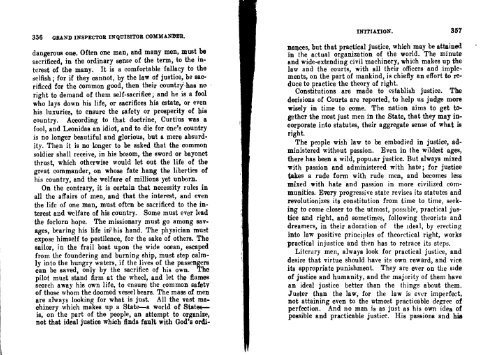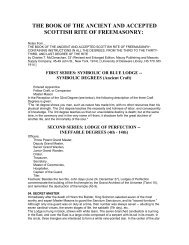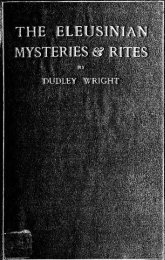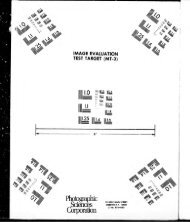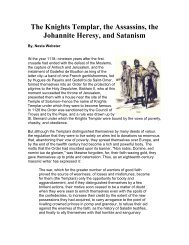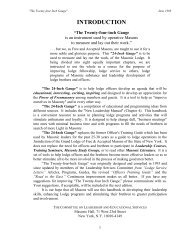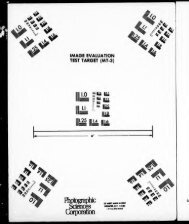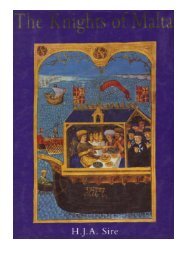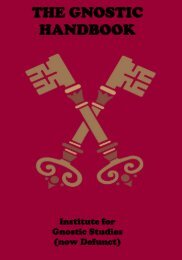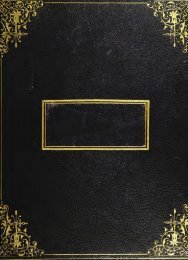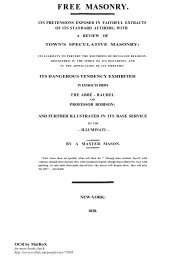Scottish Rite Masonry Illustrated - The Masonic Trowel
Scottish Rite Masonry Illustrated - The Masonic Trowel
Scottish Rite Masonry Illustrated - The Masonic Trowel
Create successful ePaper yourself
Turn your PDF publications into a flip-book with our unique Google optimized e-Paper software.
356 GRAND INSPECTOR INQUISITOR COMMANDER.<br />
dangerous one. Often one man, and many men, must be<br />
sacrificed, in the ordinary sense of the term, to the interest<br />
of the many. It is a comfortable fallacy to the<br />
scifish; for if they cannot, by the law of justice, be sacrificcd<br />
for the ~omnion good, then their country has n~<br />
right to demand of them self-sacrifice; and he is a fool<br />
who lays down his life, or sacrifices his estate, or even<br />
his luxuries, to ensure the safety or prosperity of his<br />
country. According to that doctrine, Curtius was a<br />
fool, and Leanidas an idiot, and to die for one’s country<br />
is no longer beautiful and glorious, but a mere absurdity.<br />
<strong>The</strong>n it is no longer to be asked that the common<br />
soldier shall receive, in his bosom, the sword or bayonet<br />
thrust, which otherwise would let out the life of the<br />
great commander, on whose fate hang the liberties of<br />
his country, and the welfare of millions yet unborn.<br />
On the contrary, it is certain that necessity rules in<br />
all the affairs of men, and that the interest, and even<br />
the life of one man, must often be sacrificed to the interest<br />
and wclfare of his country. Some must ever lead<br />
the forlorn hope. <strong>The</strong> missionary must go among savages,<br />
bearing his life ~ his hand. <strong>The</strong> physician must<br />
expose himself to pestilence, for the sake of others. <strong>The</strong><br />
sailor, in the frail boat upon the wide o~an, escaped<br />
from the foundering and burning ship, must step calmly<br />
into the hungry waters, if the lives of the passen ers<br />
can be saved, only by the sacrifice of his own. 4110<br />
pilot must stand firm at the wheel, and let ~he flames<br />
scorch away his own life, to ensure thc common safety<br />
of those whom the doomed vessel bears. <strong>The</strong> mass of men<br />
are always looking for what is just. All the vast machinery<br />
which makes up a State—a world of State6—<br />
is, on the part of the people, an attempt to organize,<br />
not that ideal justice which finds fault with God’s ordi-<br />
INITIATION. 357<br />
Dances, but that practical justice, which may be attained<br />
in the actual organization of the world. <strong>The</strong> minute<br />
and wide-extending civil machinery, which makes up the<br />
law and the courts, with all their officers and implements,<br />
on the part of mankind, is chiefly an effort to reduce<br />
to practice the theory of right.<br />
Constitutions are made to establish justice. <strong>The</strong><br />
decisions of Courts are reported, to help us judge more<br />
wisely in time to come. <strong>The</strong> nation aims to get together<br />
the most just men in the State, that they may incorporate<br />
into statutes, their aggregate sense of what is<br />
right.<br />
<strong>The</strong> people wish law to be embodied in justice, administered<br />
without passion. Even in the wildest ages,<br />
there has been a wild, popular justice. But always mixed<br />
with passion and administered with hate; for justice<br />
takes a rude form with rude men, and becomes less<br />
mixed with hate and passion in more civilized coinmunities.<br />
Every progressive state revises its statutes and<br />
revolutionizes its constitution from time to time, secking<br />
to come closer to the utmost, possible, practical justice<br />
and right, and sometimes, following theorists and<br />
dreamers, in their adoration of the ideal, by erecting<br />
into law positive principles of theoretical right, works<br />
practical injustice and then has to retrace its steps.<br />
Litcr~ry men, always look for practical justice, and<br />
desire that virtue should have its own reward, and vice<br />
its appropriate punishment. <strong>The</strong>y are ever on the side<br />
of justice and humanity, and the majority of them have<br />
an ideal justice better than the things about them.<br />
Juster than the law, for the law is ever imperfect,<br />
not attaining even to the utmost practicable degree of<br />
perfection. And no man is as just as his own idea of<br />
possible and practicable justice. His passions and his


